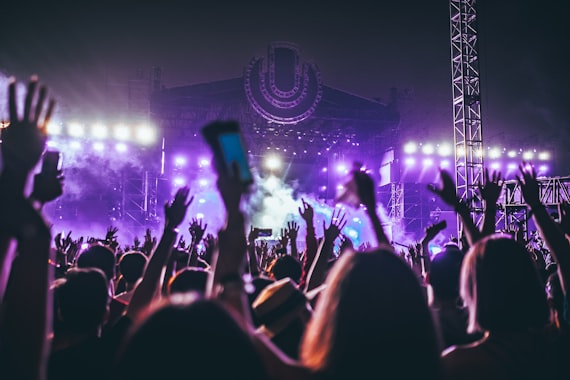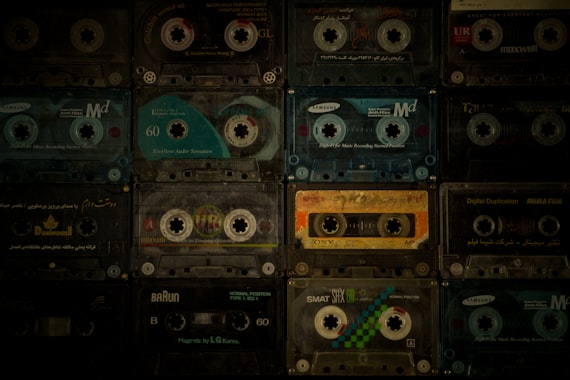

Music is one of the motivators in life. Without music, our life would feel very lonely and certainly boring. Because music can bring new colors to the world and can also be a source of comfort for us. The history of world music began in the 2nd century and 3rd century BC.
The history of music has existed since ancient times and was then used to accompany religious ceremonies. Then, changes in the history of music occurred in the Middle Ages, due to the increasing changes in the world.
The history of music did not stop there because after the Middle Ages, there was the Renaissance era, which means the rebirth of high culture levels that had disappeared since the Roman era. The progress of music during this era was shown by the emergence of new music genres, such as Baroque and Rococo.
In 1750, after the end of the Baroque and Rococo music genres, classical music emerged. This music is characterized by the use of dynamics that range from loud to soft. The tempo also becomes faster. The use of three-note chords and ornamentation is limited.
In this modern era, music has entered various electronic media with various genres of music such as pop, rock, jazz, hip hop, R & B, and all other types of music genres from around the world.
Music is a sound arranged in such a way that it contains rhythm, melody, and harmony, especially sound produced by instruments that can produce sounds. Although music is a kind of intuitive phenomenon, creating, improving, and presenting it is a form of art. Listening to music is also a kind of entertainment. Music is a very unique phenomenon that can be produced by several musical instruments.
Music is a work of sound art in the form of a song or musical composition that expresses the creator's thoughts and feelings through musical elements such as rhythm, melody, harmony, song form or structure, and expression.
In line with the changing digital era in the recording industry, developments also occur in the communication world through the internet so that music can be listened to through internet connections, of course with the help of application platforms. One of the well-known music platforms like a Tubidy or Spotify, has now been downloaded by users up to hundreds of millions.
Since the 2nd and 3rd centuries BC, there has been music with specific forms in China and Egypt. Influenced by Egypt and Babylon, Hebrew music developed and later became church music. The music was then liked by the community, because there were traveling musicians who sang songs used in church ceremonies.
The music spread throughout Europe and grew, and instrumental music progressed rapidly. After improvements to musical instruments, such as the violin and cello, the organ emerged. Great composers emerged in Germany, France, Italy, and Russia. In the 19th century, nationalism began to rise and develop.
Therefore, the development of music broke down according to their respective nationalities, even though at the beginning they were all Romantic in style. Starting in the 20th century, France became a pioneer with Impressionistic music, which was soon replaced by Expressionistic music.
Music has existed since ancient times and has been used as a tool to accompany religious ceremonies. The biggest change in the history of music occurred in the Middle Ages, due to the increasing changes in the world. Music was not only used for religious purposes, but also for worldly affairs.
The development of music in the world is divided into several eras:
The Middle Ages in cultural history is the era between the end of the Roman Empire (476 AD) and the religious Reformation by Martin Luther (1572 AD). The development of music during this era was caused by the increasing changes in the world, leading to new discoveries in all fields, including culture. A significant change in the history of music was that it was no longer solely focused on religious purposes, but also used for worldly affairs (as a form of entertainment).
The development continued with the improvement of music notation and the basics of music theory, which were developed by Guido d'Arezzo (1050 AD).
In Western Europe, music using multiple voices began to emerge. Gregorian music was perfected by Pope Gregory.
Pioneers of Music in the Middle Ages are:
The Renaissance period was the era following the Middle Ages, which means "Rebirth" of high culture levels that had disappeared during the Roman era. Music was studied with specific characteristics, such as love songs and warrior songs.
Conversely, church music declined. During this period, instruments such as the piano and organ were already known, giving rise to instrumental music. In the city of Florence, the art of opera developed. Opera is a play with musical accompaniment performed by singers.
Composers during the Renaissance period included:
The progress of music in the medieval era was marked by the emergence of new music styles, including the Baroque and Rococo periods. These two styles are almost similar in nature, which is the use of ornamentation in music. The difference is that Baroque music uses ornamentation left to spontaneous improvisation by the player, while in Rococo music, all ornamental embellishments are written down (already arranged).
Composers of the Baroque and Rococo periods include:
The Classical era (Western classical era) is closely related to harmony. Some works from this period are considered incomparable to any works from previous periods, such as Beethoven's Fifth Symphony. Haydn and Mozart were key figures of this era. Towards the end of the Classical era, musicians began to compose music with additional instruments besides the piano, such as the clarinet, trombone, and timpani.
Pioneers of Music in the Classic Ages are:
In this era, works of the Romantic period featured strong emotional and profound meanings in their composition. From the works of Schumann to Wagner, compositions became more complex as a symbol of some dramatic works like Wagner's Siegfried. Not to mention, Hector Berlioz with his work entitled "Symphonie Fantastique".
Pioneers of Music in the Romantic Ages are:
After the invention of the radio, music became more frequently heard by us, as well as television which also influenced this era, bringing music as a product of mass culture. Music also evolved to create various types or genres of music, tempo, or even its tempo.
Pioneers of Music in the Modern Ages are:
In the early 1990s, relatively cheap digital multitrack recorders were introduced for use in home studios, and they recorded back to videotape. Developed by Alesis and first released in 1991, the ADAT machine could record 8 digital audio tracks onto a single S-VHS videotape.
In the consumer market, tapes were mostly replaced by compact discs (CDs) and, to a lesser extent, MiniDiscs. The development of the MP3 audio file format made audio recording entirely digital. As the capacity of computer hard disks and CPU speeds increased in the late 1990s, hard disk recording became more popular.

By early 2005, hard disk recording took two forms. One was the use of standard desktop or laptop computers, with an adaptor to turn audio into two or more digital audio tracks, which could be connected to a computer via USB or Firewire cable.
In the 2010s, the era of technological advancement also influenced the music industry. With the advancement of digital technology at the time, the transition from analog to digital music not only affected music enthusiasts but also music production teams themselves. Music that was originally only produced manually using various musical instruments such as drums, guitars, and keyboards, can now be made using computer software.
The quality of music has also increased with the abundance of features in software that can even add certain effects that make the music more enjoyable to listen to. Enjoying music no longer requires the hassle of listening to it anywhere and anytime. Technological sophistication makes it easier for us to download the songs we want and listen to them freely.
In this decade, anyone has the opportunity to create music using various supporting applications that can be used to produce music such as Garage Band, Logic Pro, Ardour.
Adobe Audition also becomes one of the superior applications that you can use to edit and merge music. These various applications can not only help you in producing music but also can enhance the sound to become clearer and better.
This further proves that society today has a high interest in using new technology to listen to music. Various types of music and songs can be listened to from all over the world in just one streaming platform application like Tubidy.